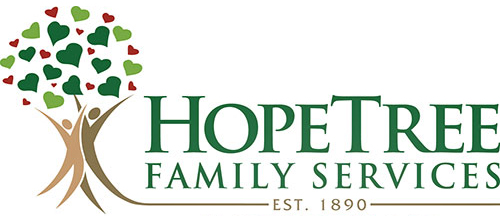Benefits
A great benefit of Planned Giving is that it enables you to make a bigger impact for the people we serve. There are other potential benefits as well:
- Income. Some Planned Giving strategies may provide income for you and your family during your lifetime.
- Tax benefits. Planned gifts may lower your income tax, help avoid capital gains and estate taxes, and enable you to pass assets to your family with a lower tax cost.
- Flexibility. Planned Giving allows you to make gifts of assets such as real estate or securities in a potentially tax-advantaged way.
- Peace of mind. By creating your gift plan now, you can rest assured that HopeTree will continue to be there for those who will need us for generations to come.
Types of Planned Giving
Bequests
A bequest is the simplest form of Planned Giving. In a written will, you specify some or all of your assets to be given to HopeTree after your lifetime.
Annuities
- Charitable Gift Annuity
Upon making your gift, you receive a fixed sum of money each year for your lifetime.
- Deferred Gift Annuity
Much like a Charitable Gift Annuity, except that you defer receiving the first fixed sum until a later date.
Trusts
- Charitable Lead Unitrust
In a Charitable Lead Unitrust, HopeTree receives a percentage of the value of the trust every year for a specified time period. At the end, the trust transfers back to you or a designated beneficiary.
- Charitable Lead Annuity Trust
In a Charitable Lead Annuity Trust, HopeTree receives a fixed sum every year for a specified time period. At the end, the trust transfers back to you or a designated beneficiary.
- Charitable Remainder Unitrust
In a Charitable Remainder Unitrust, you or a designated beneficiary receive a percentage of the value of the trust every year for a specified time period. At the end, HopeTree receives the remainder.
- Charitable Remainder Annuity Trust
In a Charitable Remainder Annuity, you or a designated beneficiary receive a fixed sum every year for a specified time period. At the end, HopeTree receives the remainder.
Life Insurance Policies
You may own a life insurance policy that has outlived its original purpose – such as providing for children that are now adults, or for a spouse that has already passed. If so, you may designate HopeTree as the beneficiary. If you then also assign HopeTree ownership of the policy, you may reduce future estate taxes and receive a tax benefit during the year you make the assignment.
Retained Life Estate
HopeTree has provided homes for thousands of children, and adults with intellectual disabilities, for over 125 years. Your home can be a way for HopeTree to continue this work. By deeding your home to HopeTree, you (and a spouse or another designated person) retain the right to live there for life. After this, HopeTree receives your home. Your gift may also provide income tax and estate tax advantages.
The Next Step
To get started, we encourage to fill out our planned giving form and to contact your financial planner to discuss the giving options that best fit your situation. For more information, or to make a gift, call us at (540) 389-2112.
